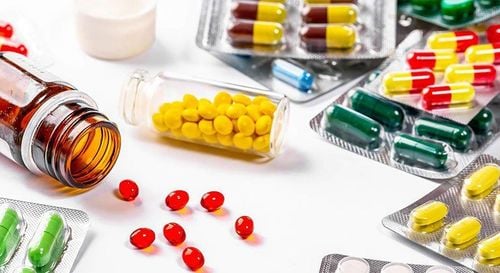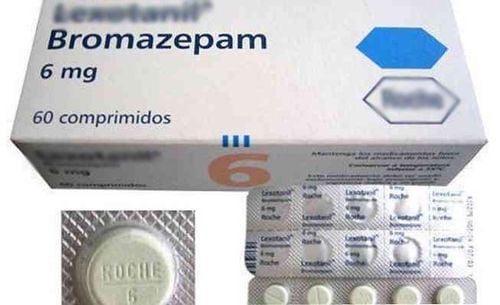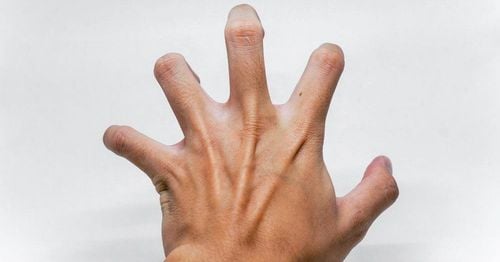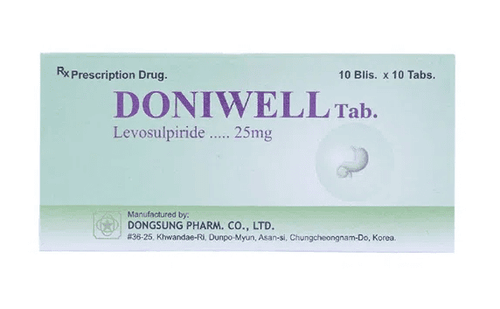This is an automatically translated article.
Seropin is a pharmaceutical drug indicated for the treatment of patients' psychological problems. The drug can cause side effects if the patient takes it on their own without a doctor's prescription. Here is some information to help you understand what Seropin is and what does Seropin do?
1. Uses of Seropin
Seropin belongs to the group of drugs used to treat psychotic syndromes. The drug comes in the form of film-coated tablets. Quetiapine is the main active ingredient in the drug. This ingredient is on the list of drugs commonly used by patients with psychosis syndromes. When fully absorbed by the body, it creates binding for 83% of plasma proteins. Then it takes 7 - 12 hours for the body to start the elimination process.
Indications for the use of Seropin are for patients with psychological syndromes. You may be prescribed if you are one of the following:
Treatment of schizophrenia Treatment of manifestations of bipolar disorder Treatment of manic episodes With some other psychiatric symptoms the doctor may consider prompt when prescribing. You can go to the hospital for a doctor's examination and specific instructions if you are using drugs to treat other conditions specified above. With indications not on the published list, you should carefully monitor your health to avoid side effects.
2. Dosage and how to use Seropin
Seropin is available in film-coated form for oral administration. You need to be careful to take the medicine exactly as prescribed by your doctor. With oral medication should add 1 glass of water after use. Water will increase the solution environment in the body, helping the metabolism to take place quickly and helping the drug concentration to reach maximum.
The dose of the drug used is considered for each patient. For different medical conditions, the dosage is also adjusted differently. Furthermore, the dose is not required throughout the course of treatment. Dosage should be evaluated, reviewed and adjusted regularly according to the patient's disease progression.
Treatment of schizophrenia Patients with schizophrenia syndrome should take the drug 2 times a day before or after meals. In the first 4 days, the dose will change in the order of 50 mg - 100mg - 200mg - 300mg. Then from the 5th day, the doctor will consider re-prescribing for the patient to use at a dose in the range of 300 - 450 mg / day. For patients with poor drug tolerance, the maximum dose is 750 mg.
Treatment of bipolar disorder The patient is prescribed to use the drug 2 times a day before or after eating. Dosage for the first 4 days should be done in the order: 100mg - 200 mg - 300 mg - 400 mg. If the patient's condition requires an increase in dose, the dose may be increased to 800mg/day until the 6th day of treatment. However, the dose difference should not exceed 200mg per day. Dosage after the first 4 days will vary from 400 to 800 mg depending on the absorption status of each patient.
Psychiatric treatment for the elderly The elderly when using the drug the first dose will be prescribed 25mg / day. The daily dose will be increased to 25 - 50 mg. The dose adjustment needs to be checked by the doctor regularly to be effective. However, elderly people should not use high doses of Seropin as adults.
Psychological treatment for underage children Children under minors are subject to restrictions on the use of Seropin. Although it is not certain how safe or effective the drug is, this is a group of people who are not recommended to use it. In case there is no better drug to replace, consider Seropin.
Treatment of patients diagnosed with the syndrome of impaired liver and kidney function Patients with renal failure after taking Seropin will reduce the clearance rate by about 25%. Therefore, the dose for this subject is lowered as with the elderly at the first dose of 25mg/day, then increased by 25-50mg daily. Dosage is increased until the desired effect of the drug is achieved as set by the doctor.
3. Notes before taking Seropin
Patient overdose has been recorded causing death. A rare case of overdose is the coma syndrome. If you have a history or background of cardiovascular disease, you should be careful, because that can be the cause of drug overdose. Overdose manifestations include hypotension and cardiac arrhythmias.
Before using the drug, the patient should check the composition of the drug Seropin. If you are allergic to any of the ingredients, tell your doctor to change to a more suitable medicine.
4. Side effects of the drug Seropin
Dizziness Drowsiness Dry mouth Weakness Syncope Indigestion Weight gain Decreased neutrophils Anaphylaxis The side effects mentioned above are only a part of the dangerous reactions that can cause patients. You may experience side effects that are not listed in the study if your body interacts differently than in the study. Therefore, always perform regular health check-ups to detect abnormalities early.
5. Interaction with Seropin
When taking the drug Seropin should avoid the habit of consuming alcoholic beverages to avoid drowsiness reactions or orthostatic hypotension. Inducers of CYP3A4 should be avoided, because they will reduce the efficacy of Seropin, especially plasma concentrations. Some substances belonging to this group of enzymes, such as ketoconazole and erythromycin, should not be used, because they interact to increase the concentration of Seropin in plasma.
Seropin medicine can appear side effects due to interactions with the body or drugs used at the same time. To ensure the health and use of Seropin, you should always take it exactly as directed by your doctor.
Please dial HOTLINE for more information or register for an appointment HERE. Download MyVinmec app to make appointments faster and to manage your bookings easily.













